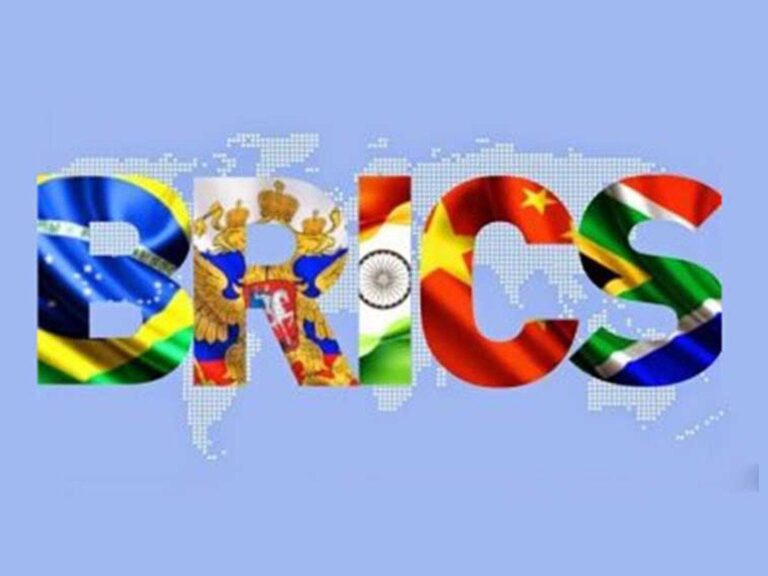On January 1, 2024, the BRICS will welcome six new members: Saudi Arabia, Argentina, Egypt, Ethiopia, Iran and the United Arab Emirates (UAE), putting together a sizeable portion of oil, gas, minerals and other resources of the entire world, no mention an enormous manufacturing capability and military might.
The expansion will further establish the group as a counterbalance to the G7’s global influence, catapulting BRICS’ share of global GDP to 36% as well as covering nearly half of the world’s population. With dozens more nations expressing interest in joining the bloc, the BRICS are clearly positioning themselves for a multipolar world, one that is not dominated by the U.S. and other developed capitalist countries.
The BRICS is expected to contribute over 50% of global GDP by 2030, with the proposed enlargement almost certainly bringing that forward.
The BRICS’ rise to create both opportunities and challenges for investors, precisely from de G-7 group, that will exit the current venues for more promising ones. The geopolitical, economic and regulatory landscape will be critical for navigating this environment successfully, need to be well understood, well beyond the totally partial and biased reports of the western stock exchanges and their crony analysts.
The US dollar’s dominance starts to be irreversibly challenged
Perhaps most notably, Russian President Vladimir Putin—speaking remotely due to an International Criminal Court (ICC) arrest warrant for unproven and hearsaywar crimes—discussed the BRICS’ push to conduct trade in local currencies instead of the U.S. dollar, a move that would significantly reconfigure global trade dynamics apart from its current western oriented financial and logistic control.
Since the Bretton Woods Conference in 1944, the dollar’s status as the world’s primary reserve currency has offered the U.S. tremendous benefits such as cheaper financing and unparalleled leverage in the form of financial sanctions to countries or institutions not subservient to them, Cuba a good instance of that. But now, with BRICS nations seeking an alternative to the USD (and growing their ranks from five members to 11), the currency landscape may see a major tectonic shift, contributing to greater volatility in the Treasury market, exchange rates, inflation and more. Nothing of that is of good omen for the economies of the USA and its allies of today.
At the heart of this strategy lies the New Development Bank (NDB).Established in 2015 as an alternative to Western lenders such as the World Bank and International Monetary Fund (IMF), the NDB has been making waves. Its recent decision to release an Indian rupee bond and to consider local currency bonds in other countries reflects its intent to diversify away from the dollar.
Former Brazilian leader and NDB’s current president, Dilma Rousseff, shared the bank’s ambitious plans to lend between $8 billion and $10 billion this year, with approximately 30% of the lending in local currencies. The U.S.-based financial system is “going to be substituted by a more multipolar system,” Rousseff told the Financial Times.
Most common opinionsforesee that the U.S. dollar will not be completely dethroned as a reserve currency (at least short term), though we may end up seeing it share the stage more prominently with the Euro, Chinese yuan, Bitcoin and other currencies (including BRICS financial vehicles to be established). In their current roster, the BRICS represent over 32% of the world’s GDP, which is slightly more than the G7’s 30%; however, GDP per capita, remains still a gap that the BRICS must bridge.
As the BRICS nations evolve and expand their influence, a more diversified global governance is inevitable. The current trajectory promises a world where traditional powerhouses, including the U.S. and European Union (EU), must adapt to new realities, like them or (most probably) not. BRICS is the likelihood to escape from the current unreasonable and untenable unipolar world.
*The author is a Cuba-American who seldom writes comments for Prensa Latina.
mh/jo










